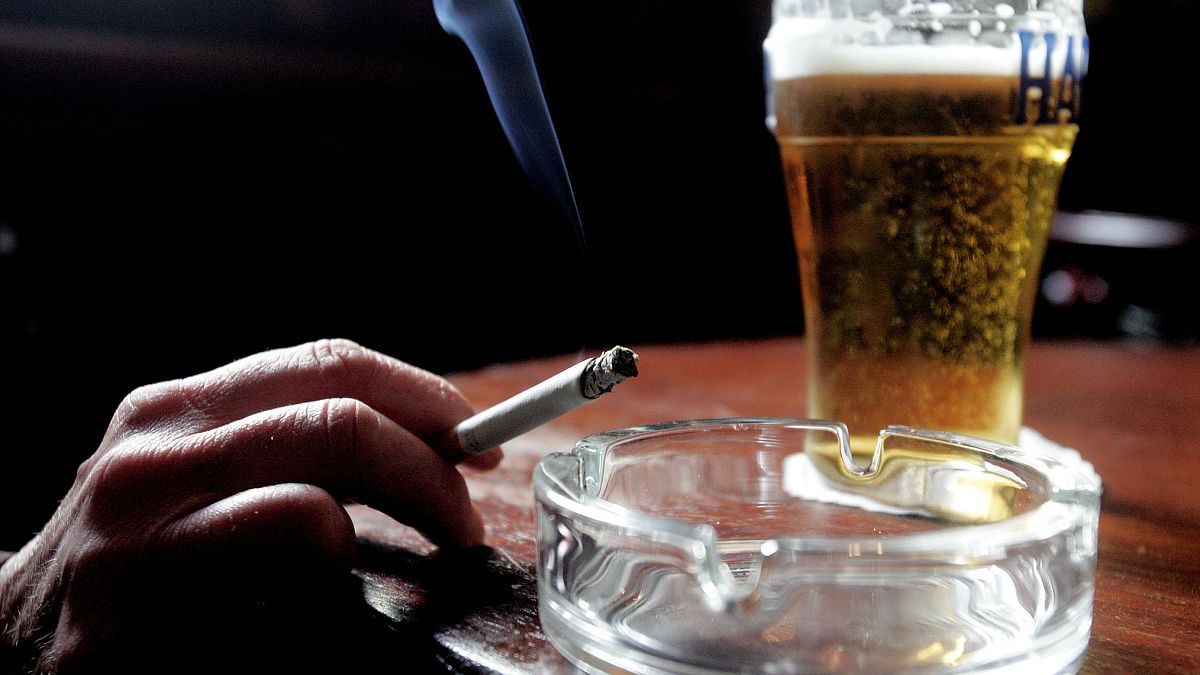These four industries cause 2.7 million deaths in Europe

A new report shows how certain industries impact health and premature mortality in the World Health Organisation’s European region.
Just four industries cause 2.7 million deaths in the European region each year, according to a new report from the World Health Organization (WHO).
The tobacco, ultra-processed foods (UPFs), fossil fuel, and alcohol industries are “wholly or partly responsible” for nearly a quarter of all deaths in the region, according to the major report.
“Four industries kill at least 7,000 people in our Region every day. The same large commercial entities block regulation that would protect the public from harmful products and marketing, and protect health policy from industry interference,” Dr Hans Kluge, WHO Regional Director for Europe, said in a statement.
The report details how these industries use marketing tactics to increase profits at the expense of public health in a wide attack on commercial industries.
“Industries use a similar playbook to maximise profits, increase market power and create the best environment within which they can further grow,” the report says, with attempts to control their negative health impacts challenged.
WHO Europe urges stronger regulations on how health-harming products are marketed, preventing conflicts of interest, and addressing monopolies.
How commercial industries impact health
According to the report figures, tobacco causes 1.1 million deaths per year in the region, while alcohol causes more than 420,000.
Fossil fuels cause more than half a million deaths annually in the region while diets high in processed meat, sodium, sugary drinks, and fat cause roughly 390,000 deaths a year in the region, the report found.
The WHO said commercial actors seek to influence policy, present themselves as “key partners to governments in addressing health harms associated with their products,” and try to distract from the harms of their products.
One example cited in the report is tobacco company Philip Morris International donating ventilators for the COVID-19 response.
In another case study, the report detailed how industry used a PR campaign to oppose a tax on sugar-sweetened beverages in Estonia.
“Industry tactics include exploitation of vulnerable people through targeted marketing strategies, misleading consumers, and making false claims about the benefits of their products or their environmental credentials,” Kluge added.
Belgian deputy prime minister and health minister, Frank Vandenbroucke, who launched the report, said: “Our current efforts are still insufficient in regulating the harmful practices of commercial actors on health, and especially those of health-harming industries”.
“I urge all newly elected European parliamentarians and policy-makers to recognise the scale of this problem and the far-reaching impact that industry practices have on public health and indeed our democratic processes,” he added.
In response to the report, Rebeca Fernández, the science director at FoodDrinkEurope, which represents the European Food and Drink industry and was specifically named in the section on sugar-sweetened beverages, said that connecting “the consumption of processed foods with the tobacco and fossil fuel industries is irresponsible and outrageously misleading”.
“We all need food – and we all need processed food,” she added, saying that the WHO report did not point out that there is “no agreed definition” of ultra-processed foods.
Related
A New Book Argues That What Happens in Europe Doesn’t…
Remaking the World: European Distinctiveness and the Transformation of Politics, Culture, and the Economy by Jerrold Seigel “No issue in world
Poland plans military training for every adult male amid growing…
Poland’s prime minister, Donald Tusk, has said his government is working on a plan to prepare large-scale military training for every adult male in response t
2025 European Athletics Indoor Championships: Ditaji Kambundji secures women’s 60m…
Switzerland’s Ditaji Kambundji walked away from the 2025 European Athletics Indoor Championships in Apeldoorn on 7 March with much more than her first Europea
Takeaways from the EU’s landmark security summit after Trump said…
BRUSSELS (AP) — European Union leaders are trumpeting their endorsement of a plan to free up hundreds of billions of








